How to Fix Dehydrated Skin: Fix Your Moisture Barrier!
Did you know there is a difference between dry and dehydrated skin? After a recent trip to France, I came back with skin issues I have never experienced before.
At first I thought I was suffering from a bad breakout of acne, but all the zit treatments I was using just made my skin feel worse (and super tight)! It took me weeks of research to figure out my normal skincare routine needed to be changed ASAP.
It never occurred to me that my oily skin type (with uncontrollable shine, in a bad way) could be lacking moisture. What the?!
Contents
Key takeaways:
1) Dehydrated skin is a skin condition that can unfortunately happen to every skin type — dry, oily or combination!
2) Dry vs. Dehydrated: If you have dry skin, it means you have fewer oil-producing glands on the face and body. Therefore your skin produces less sebum than normal skin would and it has less lipids to retain moisture.
If you have dehydrated skin, it means that your skin simply doesn’t have enough water due to external factors. It’s a condition, NOT a skin type.
3) To fix your dehydrated skin, you must first understand how your skin’s “moisture barrier” works and why it’s so crucial to protect it.
Below we will discuss signs of dehydrated skin, causes and methods to fix it! We have something for every skin type.
Signs of Dehydrated Skin
First things first, how can you tell if your skin is dehydrated?
- Your skin feels tight after you cleanse, even after applying moisturizer.
- Your skin looks dull, flaky, scaly and it lacks suppleness or bounce.
- It might even feel itchy, with burning sensations.
- It also could look shiny and crinkly with acne bumps (most common in oily skin types).
- Congested skin and closed comedones.
- Wrinkles appear darker or more exaggerated, or new ones you have never seen before have appeared.
- Redness, inflammation and uneven texture.
- Skin can become highly sensitive and freak out even to the most gentle of products.
Photos of Dehydrated Skin
What is Causing Your Skin to be Dehydrated?
- Using cleansers that are too harsh (bar soap could be an example)
- Using hot water to wash body.
- Not moisturizing properly after cleansing.
- Washing your face too much.
- Over-treating acne issues with topicals.
- Weather changes (dry air).
- Too much sun (UV radiation).
- Harsh winds.
- Using rough physical exfoliants (peeling pads, scrubs and beauty tools such as Clarisonic face brushes).
- Excessive use of alcohol-base astringents, overusing AHA/BHA, clay masks, retinoids, sodium. lauryl sulfate and essential oils.
- Too much caffeine consumption.
- Smoke exposure (such as cigarettes).
- High-sodium diet and eating too many processed foods.
- Not drinking enough water.
Other major reasons your skin can be prone to dehydration:
- Skin conditions such as psoriasis, irritant contact dermatitis, atopic dermatitis and cutaneous lymphoma.
- Heredity disorders such as Ichthyosis vulgaris and netherton syndrome.
- Hormonal imbalances such as hypothyroidism and estrogen deficiency.
Understanding Your Moisture Barrier
If you want to fix your dehydration woes, you must first understand how your skin’s “moisture barrier” works.
Your skin has three layers (epidermis, dermis and subcutaneous tissue). The first layer of your skin is the epidermis, which provides a waterproof barrier to keep moisture IN and bad bacteria OUT (epidermis = “moisture barrier”). It also contains cells that produce the pigment in your skin.
When your epidermis is compromised (usually due to the factors we listed above such as harsh cleansers, actives, bad alcohols and other irritants), the protective waterproof barrier is stripped away which causes your skin to lose moisture at alarming rates. When your skin loses moisture, it tries to compensate by producing more oil (sebum), which will also make your skin produce more bacteria to feed on the dead skin cells. And yes, you guessed it, this is what leads to awful breakouts, blockage, bacterial infections, acne and all of that stuff we love… NOT! Ugh (more common in oily skin types).
STOP and EVALUATE your entire skincare routine/environmental factors NOW. At this tragic point, your skin is sensitive AF!
How to Fix Your Moisture Barrier
So, how do you get your broken “moisture barrier” back to it’s glory water-retaining days?! Well, the most important thing is to drink lots of water, with almost every skin issue H2O is one of our best friends! Do it. Trust me, your skin and body will thank you!
You must become a detective, look at ALL the ingredients in your skincare routine and start reading the labels! Ask yourself what environmental factors could be the culprit as well?
Outline for success:
- To prevent more unwanted dryness, take quick luke-warm showers and wash your face with cold water.
- Use a creamy, oil or nonfoaming cleanser that doesn’t try out the skin.
- Immediately after cleansing, use a milky/hydrating toner to remove extra leftover residue and restore pH levels.
- Depending on how irritated your moisture barrier has become, no exfoliating actives for at least thirty days or more.
- When your moisture barrier starts to feel normal again, choose a gentle AHA/BHA instead (avoid harsh exfoliants at all costs).
- Add a hydrating serum that works on the dermis layer of your skin.
- Choose a hydrating moisturizer or facial oil with humectants that help bind moisture to your skin.
- Never forget your SPF!
The Best Skin Moisturizer Products for Dehydrated Skin
To combat this overwhelming task, I made a simple list of ingredients to avoid and holy grail products for dehydrated skin. Once you start using the right ingredients and stop using the wrong ones, your skin will go back to normal. Keep in mind though, it takes about two weeks to heal your skin. Be patient and remember it’s truly about keeping it simple!
If you find that your skin feels plump again, but you’re having a hard time getting rid of skin texture (groups of tiny little bumps that won’t pop), then you might also be dealing with fungal acne like I was. If that’s the case, here is a list of fungal acne safe products to use.
Let’s begin with cleansing products that don’t strip your skin and aid with hydration.
Cleansing Products
Bioderma Sensibio H20
Farmacy Natural Makeup Remover
COSRX Good Morning Cleanser
DERMA E Cleanser with Vitamin C
Combo/Oily Skin:
Dry Skin:
A few tips on finding the best cleansing product/face wash:
- Look for creamy, oil or non-foaming cleansers.
- Look for mild surfactants or avoid them altogether. Surfactants are a cleansing agent that cuts oils from your skin.
- Look for “sulfate-free” cleansers.
- Avoid bar soap with high pH levels.
- Avoid makeup wipes and micellar water, wiping can cause irritation and inflammation.
- Avoid harsh cleansers that make your skin feel tight.
- Avoid cleansers with beads or granules that tear at the skin.
Toners & Essences
For Combo/Oily Skin:
Dry Skin:
Tips on finding the best toner:
- Avoid harsh toners with exfoliants.
- Look for hydrating and creamy toners.
- Alcohol-free.
- It should leave your skin feeling moisturized.
Serums
Combo/Oily Skin:
Dry Skin:
What to look for in serums:
- Serums with hyaluronic acid, squalane and niacinamide to help moisture bind to your skin.
- Avoid synthetic ingredients and fragrances.
Gentle Exfoliation
Important to keep in mind: Only start exfoliating after you skin barrier has improved. If you start exfoliating too soon, you might cause more damage and tears to your acid mantle wall. This will cause even more irritation and bumps. I recommend first doing a patch test, and if that goes well then start exfoliating once a week. Go slowly, I cannot stress this enough! If you have very sensitive and reactive skin, I would try the Neogen Real Cica Pads below. These pads were created for sensitive skin, but will still help get rid of your dead skin cell build up. It softens your skin with PHAS, which is the most gentle chemical exfoliant of them all.
A.M. and P.M. use:
P.M. use only:
Day-time Moisturizers
Combo/Oily Skin:
Dry Skin:
Nighttime Moisturizer / Face Oil
Combo/Oily Skin:
Dry Skin:
Ingredients to look for in moisturizers to aid your parched skin:
- Humectants are vital for hydrating your skin.
- Look for Hyaluronic Acid, Glycerin and Urea.
- Peptides to support your skin’s natural collagen production.
- Ceramides also protect the skin barrier.
Hydrating Masks
- The Best Hair Claws on Amazon! - October 7, 2020
- My Pmel Essence Mascara Base Review - September 28, 2020
- The Best Treatments for Dark Spots (Hyperpigmentation) - July 23, 2020

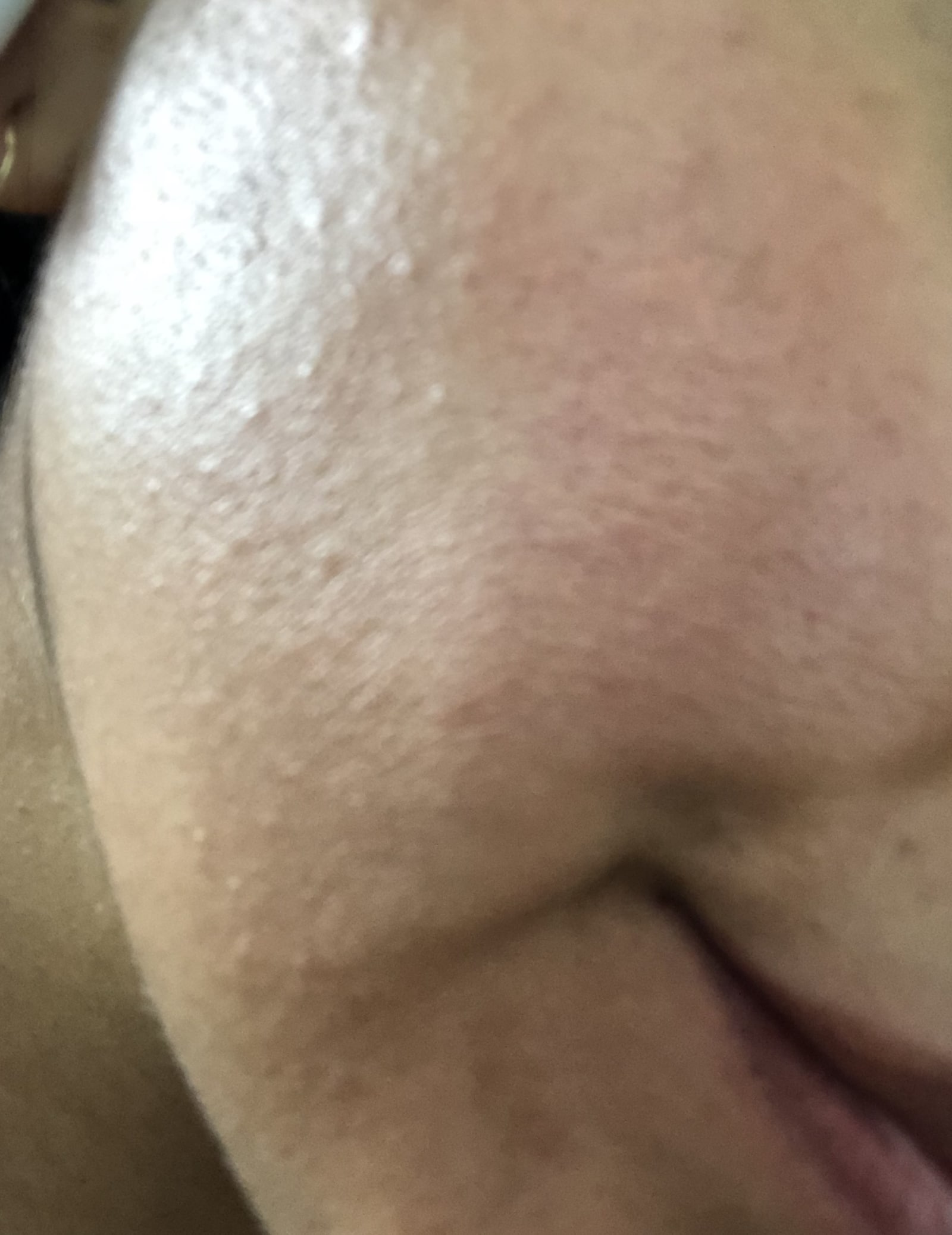
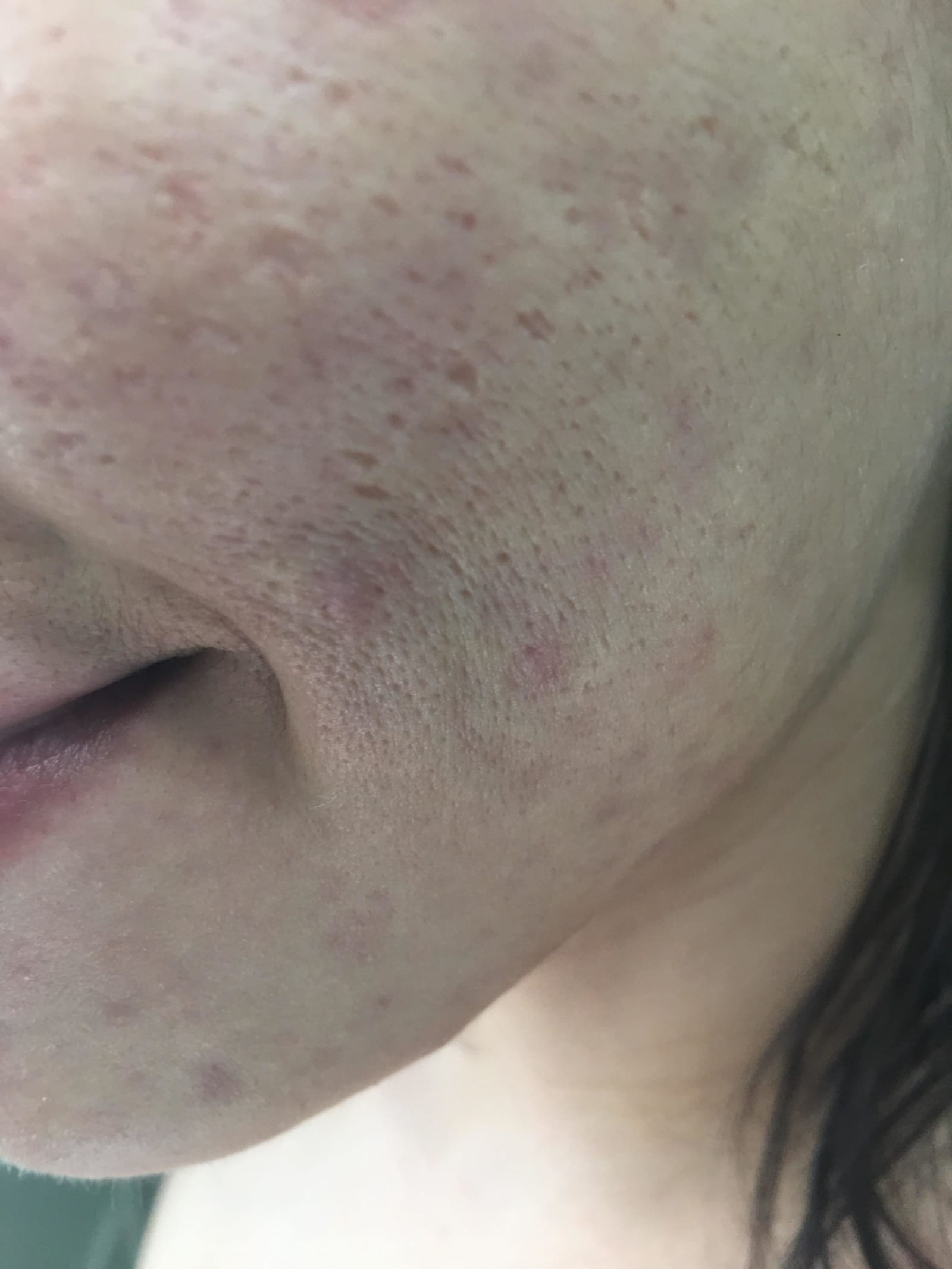
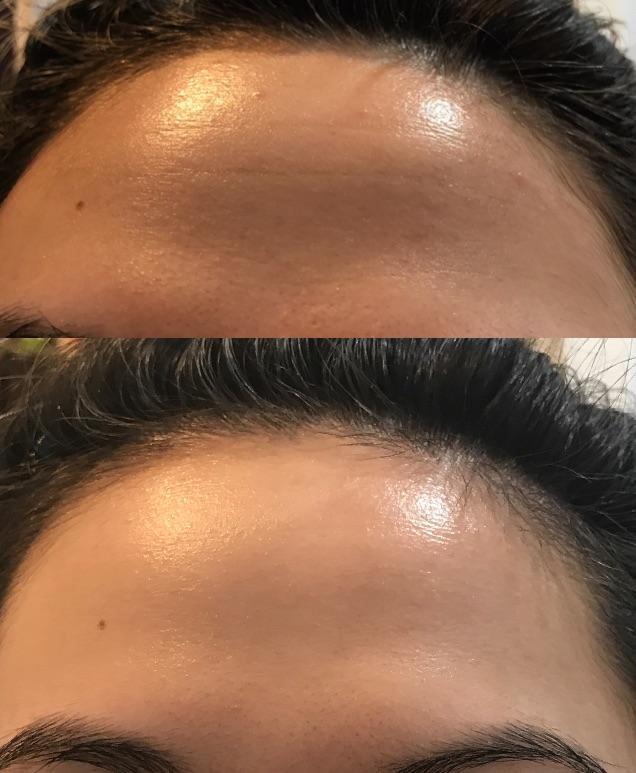















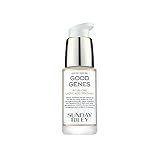







![[Klairs] Rich Moist Soothing cream, 60ml, soothing and hydrating](https://m.media-amazon.com/images/I/210okal6uGL._SL160_.jpg)









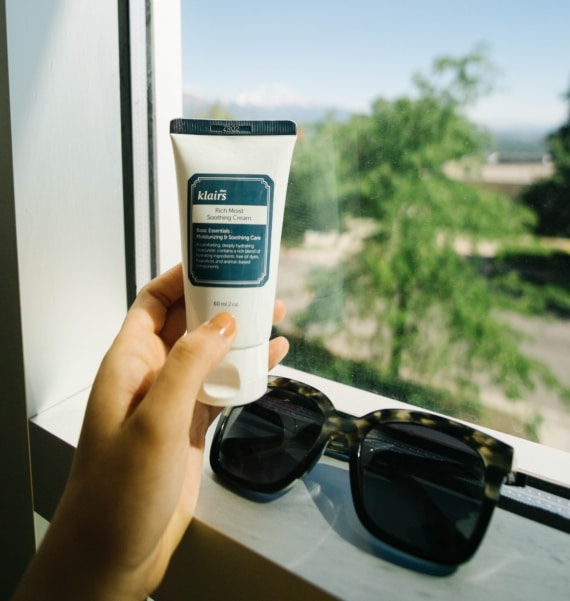
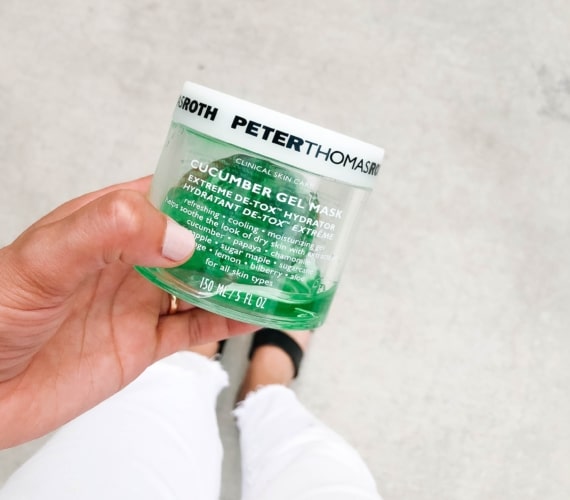
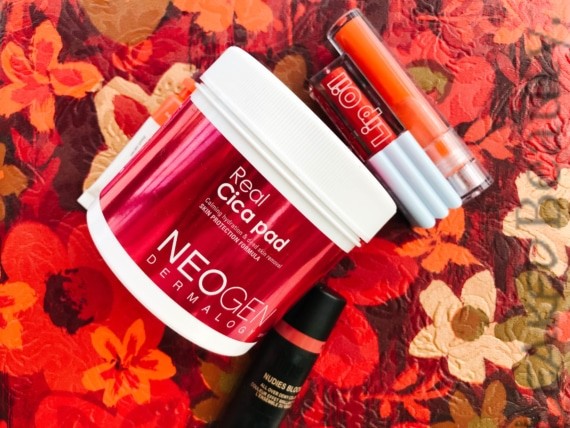
3 Comments
Hi Patricia,
Thank you for this post, very helpful land rich of good tips. I am actually going trough a massive dehydration due to over exfoliation. My skin is oily and acne prone and the use of BHA and retinol make a huge difference. Unfortunately I didn’t understand in time when my skin started to be unhappy (I went through a very stressful time and I thought that the increasing breakouts were caused by it so I continued to over exfoliate and treat the acne). It has been one month now that I am trying to fix my damaged moisture barrier and I am already following several of your advices (Gentle cleanser, hydrating toner, serum with hyaluronic a and Niacinamide. Not exfoliation at all, CeraVe moisturiser with ceramides) but I am struggling to see some improvement 😞 I am so worried that the damage would be permanent. Did you managed to restore your moisture barrier? Did your skin cams back as before? How long did it take? Thanks for reading 🙂
Hi Lina,
I’m so sorry to hear that! I feel your pain though — don’t give up! It took me a quite some time to figure out how to get my moisture barrier back to normal. I would suggest going on a “skincare fast” — minimizing your products for a month before adding anything new, and only cleanse your face once a day.
For example, my morning routine is to splash luke-warm water or micellar water on my face, add my moisturizer (First Aid Beauty, Ultra Repair Cream) while my face is still moist to lock in the hydration. Then, I put my hydrating chemical sunscreen (Sun Project Water Sun Screen). Avoid mineral sunscreens as they are too drying!
My nighttime routine starts off with a double cleanse with luke-warm water. I use a cleansing balm (Farmacy Green Clean) to melt away my makeup/sunscreen, and then I follow up with a hydrating non-foaming cleanser (I like the La Roche-PoseyTolerian Hydrating Cleanser and CeraVe’s Hydrating Cleanser) . I found that the double-cleanse method has reduced my acne without using harsh products, it is also beneficial to keep your pores cleansed. Then, of course, I apply my moisturizer while my skin is still moist to trap in the hydration. My last step is to add rosehip oil over my moisturizer to prevent water loss during sleep.
Also, I noticed a BIG difference when I stopped washing my face in the shower and I stopped taking hot showers altogether. Taking hot showers will cause transepidermal water loss, which will suck out the water through the epidermis layer of your skin. I was using all of these hydrating skincare products, but receiving no benefit because of my hot showers!
A few more tips — wear a hat in the sun, don’t use scrubs, cotton pads or towels to dry off your face and add a humidifier by your bed at night if you can. I hope you find this advice useful, and let me know if you have any more questions. Once your skin feels better, use a very gentle PHA exfoliator to shed off surface dead skin cells without causing irritation (I use Neogen’s Real Cica Pad). Use with caution, only once a week, and then you can build it up. 🙂
Thank you for all this info. I am going through a bad phase with my skin and is mainly my forehead. I read so many different things I don’t know where to start. I have made a lot of Changes to my diet but also ended up having 6 weeks of antibiotics in the last 6 months so don’t think this has helped. I have a very bumpy texture to my forehead that I am so conscious of. There are so many products out there I find it very confusing. I need to find a good spf and moisturiser. I think I may have overdone it with different products panicking about my skin. I fee everything breaks me out especially spf. Fingers crossed I get it sorted but know if will take time.